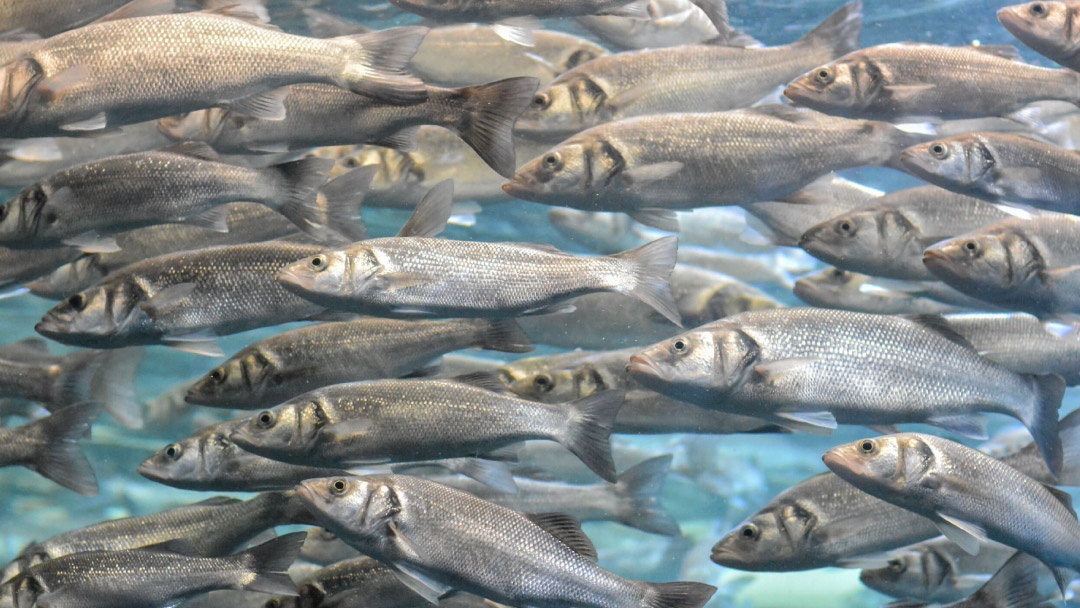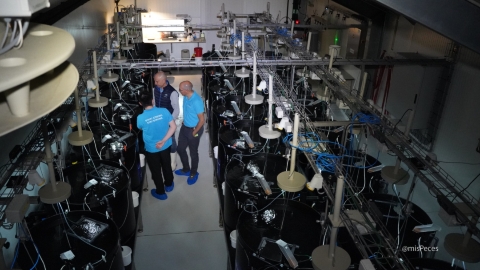 European sea bass
European sea bass
Applied in fish farming, cutting-edge camera vision technology and artificial intelligence promise to revolutionise feeding management by enhancing production efficiency and improving fish welfare, providing producers with valuable insights into optimal feeding times and quantities.
Leading the charge, researchers at the Hellenic Centre for Marine Research have conducted a pioneering study in Souda Bay, Crete, showcasing the impact of this approach on productivity and fish welfare at a European sea bass (Dicentrarchus labrax) farm.
At the core of this research is the Feeding Behaviour Index (FBI), a metric that assesses fish density and clustering during feeding times. This index has proven to be a reliable guide for fine-tuning feeding quantities and timing, effectively minimising the risk of errors such as overfeeding or underfeeding.
The study examined different feeding conditions based on how often, when, and how much fish were fed. The researchers the linked this behavioral data to the physiological state of the fish, laying the foundation for a more automated and efficient feeding process in aquaculture.
This technology will greatly benefit floating farms by reducing the need for intensive manual oversight, lowering costs, and boosting operational efficiency.
For accurate monitoring, the research utilised two advanced AI models: YOLO (You Only Look Once) for rapid fish detection within images and DEEPSORT for continuous tracking of individual fish over time.
By leading this research, the Hellenic Centre for Marine Research not only sets a benchmark for Mediterranean aquaculture but also points towards a future where AI and computer vision technology could apply across various species and aquaculture settings. This advancement opens door to more sustainable practices and optimised efficiency for the industry worldwide.


